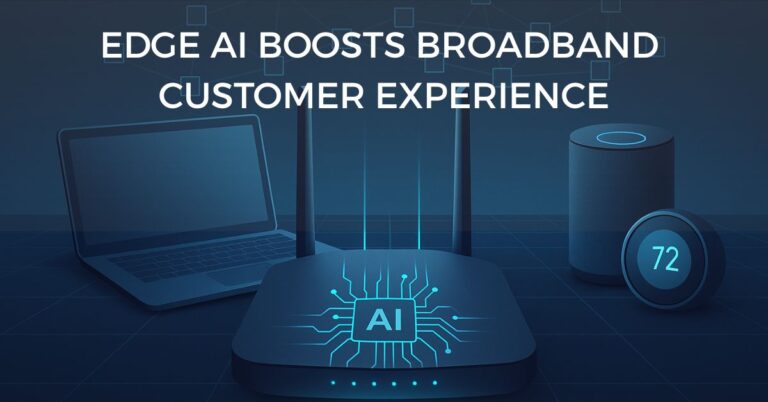Bell Canada’s Strategic AI Partnership with Mila and Google: Transforming Telecommunications with Generative AI
Bell Canada, a leading communications company, has embarked on a transformative journey by partnering with Mila, the AI research institute in Montréal, and Google Cloud. These collaborations aim to develop AI solutions that will significantly enhance customer experiences and optimize business operations. This three-year partnership with Mila, complemented by Google Cloud’s advanced AI technologies, is part of Bell’s ongoing efforts to establish itself as a technology services leader through strategic investments in AI.
Enhancing Customer Experience with Generative AI
One of the core focuses of Bell Canada’s partnership with Mila and Google is leveraging generative AI to improve customer interactions. Bell Canada is implementing Google Cloud’s Contact Center AI (CCAI) to revolutionize their contact center operations. This AI-driven solution provides intelligent, natural-sounding virtual agents that handle simple customer queries, allowing human agents to focus on more complex issues. By doing so, Bell aims to reduce call volumes, accelerate resolution times, and enhance overall customer satisfaction.
The generative AI technology also powers Agent Assist, which offers real-time recommendations to agents based on customer needs and sentiment analysis. This feature not only improves the efficiency and effectiveness of agents but also enhances the customer experience by providing timely and relevant solutions.
Optimizing Business Operations with Predictive AI
Bell Canada is also utilizing predictive AI to streamline its operations. One notable application is in predicting environmental events such as snowstorms or heavy rains that may cause network outages. By analyzing data and forecasting potential risks, Bell can better prepare its workforce and resources, minimizing the impact of such events on their network and customers. This proactive approach to network management not only enhances service reliability but also reduces the costs associated with major outages.
Collaboration with Google Cloud
Bell Canada’s partnership with Google Cloud further enhances its AI capabilities. The implementation of Google Cloud’s CCAI solutions provides Bell with a comprehensive suite of tools for digital transformation. These tools include virtual agents, agent assist, and advanced analytics, all designed to improve customer and employee experiences. Google CCAI enables Bell to deliver rich conversational experiences and analytics, offering scalability and flexibility that can be integrated into existing contact center environments or cloud contact centers of any size.
Bell’s deployment of these AI solutions internally has already shown significant improvements in customer service and operational efficiency. The company will work with its customers to customize use cases that leverage the power of these innovative technical solutions, transforming contact centers into revenue-generating units.
Building a Vibrant AI Ecosystem
The partnership with Mila extends beyond operational improvements. Bell Canada is committed to fostering a vibrant AI ecosystem within Québec and across Canada. By collaborating with emerging AI innovators and engaging in scientific discussions, Bell aims to contribute to the growth and development of AI technologies that can benefit the broader business community.
Mila’s expertise in deep learning and generative models plays a crucial role in this initiative. The institute’s groundbreaking research in language modeling, automatic translation, object recognition, and more, will drive transformative improvements across Bell’s operations and services. This collaboration not only strengthens Bell’s AI capabilities but also positions Montréal as a key center for innovation.
Bell Canada’s Strategic AI Partnership with ServiceNow: Accelerating Digital Transformation
Bell Canada has announced a multi-year strategic agreement with ServiceNow to accelerate its digital transformation and leadership in AI-powered solutions. This renewed commitment makes Bell one of ServiceNow’s largest communications customers with a first-of-its-kind collaboration in Canada. Bell will expand its use of the ServiceNow platform to support its own digital transformation while offering ServiceNow implementation expertise to Bell Business Markets enterprise customers.
FX Innovation, acquired by Bell in 2023, will implement the Now Platform throughout Bell’s ecosystem. The platform will streamline business-critical areas, including Network, Customer, Field Service Operations, and Corporate Services. Bell will use automation, purpose-built telecommunications solutions, and AI-driven insights to provide technicians and customers with a more efficient experience, enhancing customer service.
The Now Platform will enable Bell to deliver an AI-optimized experience, leveraging the power of GenAI-driven insights to automate scheduling, better meet customer requests, and reduce drive time. Enhanced customer support with powerful automation capabilities will streamline order management, case management, and incident response processes.
This partnership positions Bell to be a leader within Canada’s tech services landscape, offering Canadian enterprises end-to-end support for their digital transformations while transforming its own network and infrastructure. The collaboration with ServiceNow strengthens Bell’s purpose to advance how Canadians connect with each other and the world, supporting the company’s evolution from a telecommunications company to a tech services leader.
Conclusion: Bell Canada Leads AI-Driven Transformation
Bell Canada’s strategic partnerships with Mila and Google Cloud underscore its commitment to driving AI innovation in the telecommunications sector. By leveraging generative and predictive AI technologies, Bell is poised to enhance customer experiences, optimize business operations, and contribute to the growth of a vibrant AI ecosystem in Canada. These collaborations set a new benchmark for AI-driven transformation in the telecom industry, highlighting Bell’s role as a technology services leader.




























